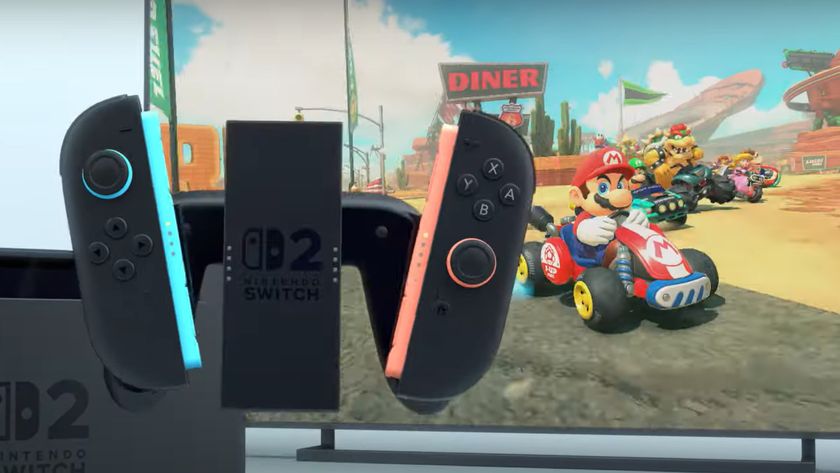Complicated names for simple video game features

A health bar by any other name...
Health bars, magic points, dolla' dolla' bills, y'all. Many games share similar mechanics, for the simple reason that they work. Getting hit causes your health bar to shrink, using a fireball depletes your magic reserves, and the amount of money you get is directly proportional to the amount of problems you have. Calling them what they are in such simple terms makes them instantly recognizable to anyone who's played a game in recent memory So why do so many games insist on rocking the boat?
Sure, a little bit of world building is fine--calling the currency in The Legend of Zelda "rupees," for instance--but sometimes, games go a little too far in trying to tie their game mechanics to the universe the developers have created. Even worse, some marketers have taken some creative liberties with the English language to make something seem way more interesting than it is. Either way, they all make normal game mechanics sound completely ridiculous. Here are some of the silliest examples.
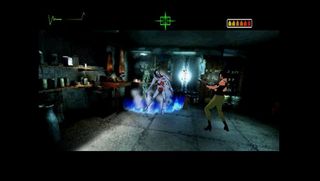
Fear Effect's "fear" meter
Back in the late '90s, players flocked to Fear Effect for its survival horror gameplay and its equally terrifying tank controls (I'm sure it had nothing to do with its buxom female leads and the hopes that they would make out at some point during the game). Anyway, Fear Effect shares a lot of similarities to the PlayStation era Resident Evil games, but the "fear" meter is the main thing that helps it stand out. Unfortunately, it's not as novel as it sounds.
Ideally, the "fear" meter is supposed to represent the main character's own fear in a given situation. In practice, it's essentially a glorified health bar. Getting hit causes your fear to increase, and when you get too scared, you die. The only difference here is that your health--I mean, "fear"-- is lowered by defeating enemies, rather than finding health packs. Because honestly, what would you pick up to lower your fear? A pink teddy bear?
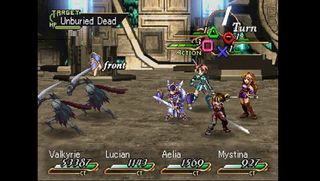
Valkyrie Profile's "Divine Materialize Energy"
In the quest to build an army for Valhalla, Lenneth the Valkyrie must scour Midgard for the right soldiers to fight on in the afterlife. Translation: massive battle in the coolest version of heaven, an angel seeks soldiers to fight, and those soldiers need to be dead. You can't exactly have health points if you're not alive, right?
To "fix" this problem, Valkyrie Profile decides to call its health bar "DME" instead. What does this mean, exactly? Well, if you're lucky enough to own a copy of the game with an instruction manual, you'll learn that it means "Divine Materialize Energy," a uniquely Japanese series of buzzwords that essentially describes Lenneth's ability to give temporary physical form to the spirits that she's gathered. It functions exactly the same as HP in any other RPG ever made. Sure, it makes sense, narratively speaking, but why go to such lengths to potentially confuse your players?
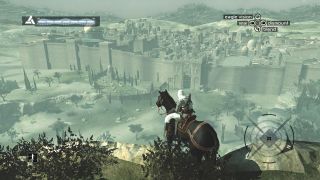
Assassin's Creed's "synchronization" meter
Strapping yourself into a machine and diving into your ancestor's genetic memories is exhausting work, but actually pulling off your great-great-great-great-great-great-grandfather's slick murder moves is even trickier. But the problem with this is: if the character experiencing these memories isn't actually in any legitimate danger, how do you implement a health bar? Simple: You call it a "synchronization" meter and treat it exactly the same.
The "synchronization" meter represents the Animus-user's ability to directly follow in his ancestor's footsteps. His ancestors never hurt civilians--and never got hurt at all, apparently--and doing these things causes the meter to drop. Let it drop all the way, and you get booted out of the memory. The problem here is that it only applies to typically combat-related actions, not doing things that are actually out of character. Like wasting time. I find it hard to believe that, in between stabbings, Altair spent most of his time finding random flags. Why doesn't procrastination "desynchronize" you, too?
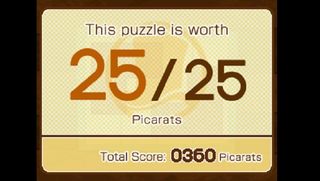
Professor Layton's "Picarats"
Everyone knows what points are. They're numbers you get for doing cool stuff, and you want as many points as possible to open new areas, unlock features, or simply brag about how awesome you are. It's a simple concept, and yet the Professor Layton games have to go and change things up just because it can.
As you solve puzzles in each of Professor Layton's gentlemanly adventures, you earn points called "Picarats." If you fail at a puzzle, you earn less Picarats than you would if you'd gotten it right the first time. Why do you need them? Occasionally your progress is gated off unless you have the required amount, and they also unlock some concept art in the extras menu if you have enough. Picarats are basically a glorified high score meter, and there's no in-game explanation as to why they're called such, so why bother even calling them something other than what they are?
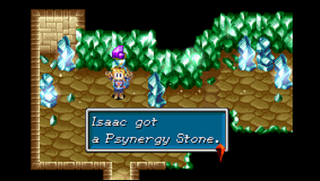
Golden Sun's "Psynergy"
Japanese games looooove coming up with weird words and phrases to describe fairly simplistic concepts. But what Golden Sun uses to refer to its magical skills sounds like something you'd hear in the most stereotypically boring office meeting ever.
Instead of just calling it "magic" like like a normal JRPG, Golden Sun opts for the ridiculous sounding "Psynergy." It's a portmanteau of "psychic energy," but it essentially acts like magic, complete with fire, water, and wind elements. Heck, there are locations in game that refer to magic as "Chi," which is at least a real thing in many Eastern religions. To be fair, there are abilities like "Move" (which causes a giant hand to appear and shove large objects out of the way) that are more like actual psychic power, but there's no need to combine the words together. Don't worry, though; no one will judge you if you simply call it magic instead.

Forza Motorsport 5's "Drivatars"
E3 2013 was weird. Not only did we get EA trying to ram "Levolution" down our gullets, Microsoft was on the other side foaming at the mouth about Forza Motorsport 5's latest addition: "Drivatars." Another meaningless buzzword, it combines "driver" with "avatar," but what it describes is a actually a pretty great idea.
A "drivatar" is essentially a fancy word for something every single game has already: artificial intelligence. Only in Forza, the artificial intelligence is created by aggregating the driving data of you and all of your friends and pushing it to the magical data cloud. Seeing people from your Xbox friends list pop up in your single player game is cool and all, but--for the last time, guys--stop making up stupid words.
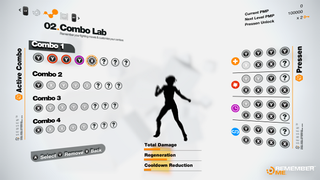
Remember Me's "Pressens"
In Remember Me, it is the future, and protagonist Nilin has lost her memory. Luckily for her, memories are also a commodity, which can be controlled and manipulated like any physical product. As Nilin fights enemies and levels up, she regains fragments of her memories and restores her combat abilities. These combat memories are referred to in the game as "Pressens." Wait, what?
I mean, it's the future, so of course every product is liable to have a silly brand name--it's only 2014 and we have products called Tumblr and Spotify--but once you realize what Pressens actually are, the ridiculousness goes over the top. A Pressen is a button. Namely, a button on your controller. You can combine different kinds of Pressens to string new combos together. There's also no real context as to why they're called Pressens; they simply are. Completely pointless.
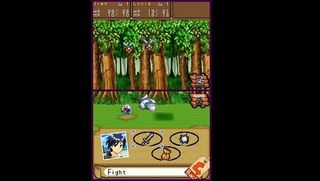
Lunar: Dragon Song's "Althena Conduct"
Virtually every RPG rewards your team with experience points for completing quests and slaying monsters. So of course, someone has to go and change things up for no reason. And of course, it had to be the aggressively mediocre Lunar: Dragon's Song to do it.
The Goddess Althena oversees the world of Lunar: Dragon's Song, and has an insatiable desire to see its citizens kill the various flora and fauna that inhabit it. Or, at least that's the impression I get, considering that--instead of earning experience points like a normal person--you're rewarded with "Althena Conduct" instead (never mind that they're basically the same thing). Honestly, considering how much else the game botches, the name switcheroo seems like it's the least of its worries.
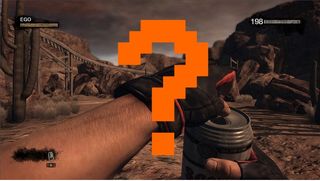
You don't have to try to be different, you know.
When used properly, a new name for well-worn mechanic can liven things up and create a better sense of immersion (ooh, another one for you if you're playing Buzzword Bingo at home), but unless your "mental awareness" meter does something truly different, there's no need to get fancy with it. Sometimes it's perfectly fine to call a health bar a health bar. And repeat after me: it's never OK to combine two words into one to describe a feature in your video game. Good? Good.
Looking to read some more stuff about video games? Of course you are! Check out this list of 10 games that treat you like dirt for playing on easy mode, or this list of Top 7 moments every Smash Bros. player loves.


Assassin's Creed Shadows was originally envisioned without Yasuke, but Ubisoft wanted the full feudal fantasy: "We were sort of making a stealth tank, and it didn't quite work"
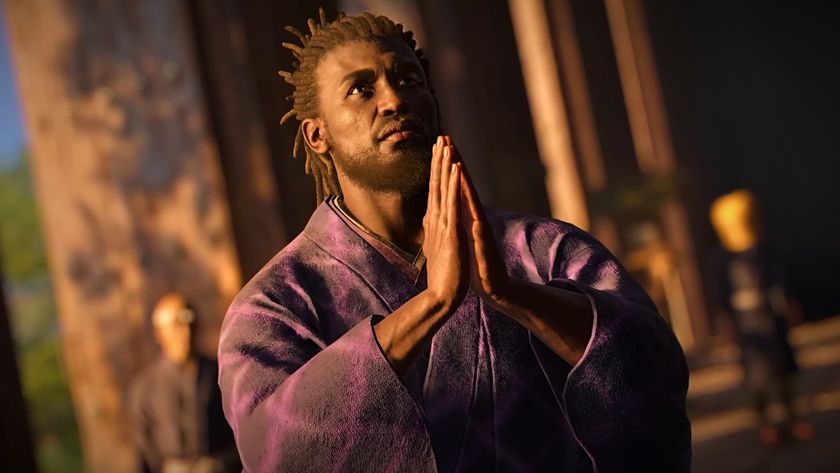
Assassin's Creed Shadows lead says dual protagonists are "a cool thing" the new action RPG "does better than what we've done in the past"

Assassin's Creed Shadows was originally envisioned without Yasuke, but Ubisoft wanted the full feudal fantasy: "We were sort of making a stealth tank, and it didn't quite work"

Assassin's Creed Shadows lead says dual protagonists are "a cool thing" the new action RPG "does better than what we've done in the past"
